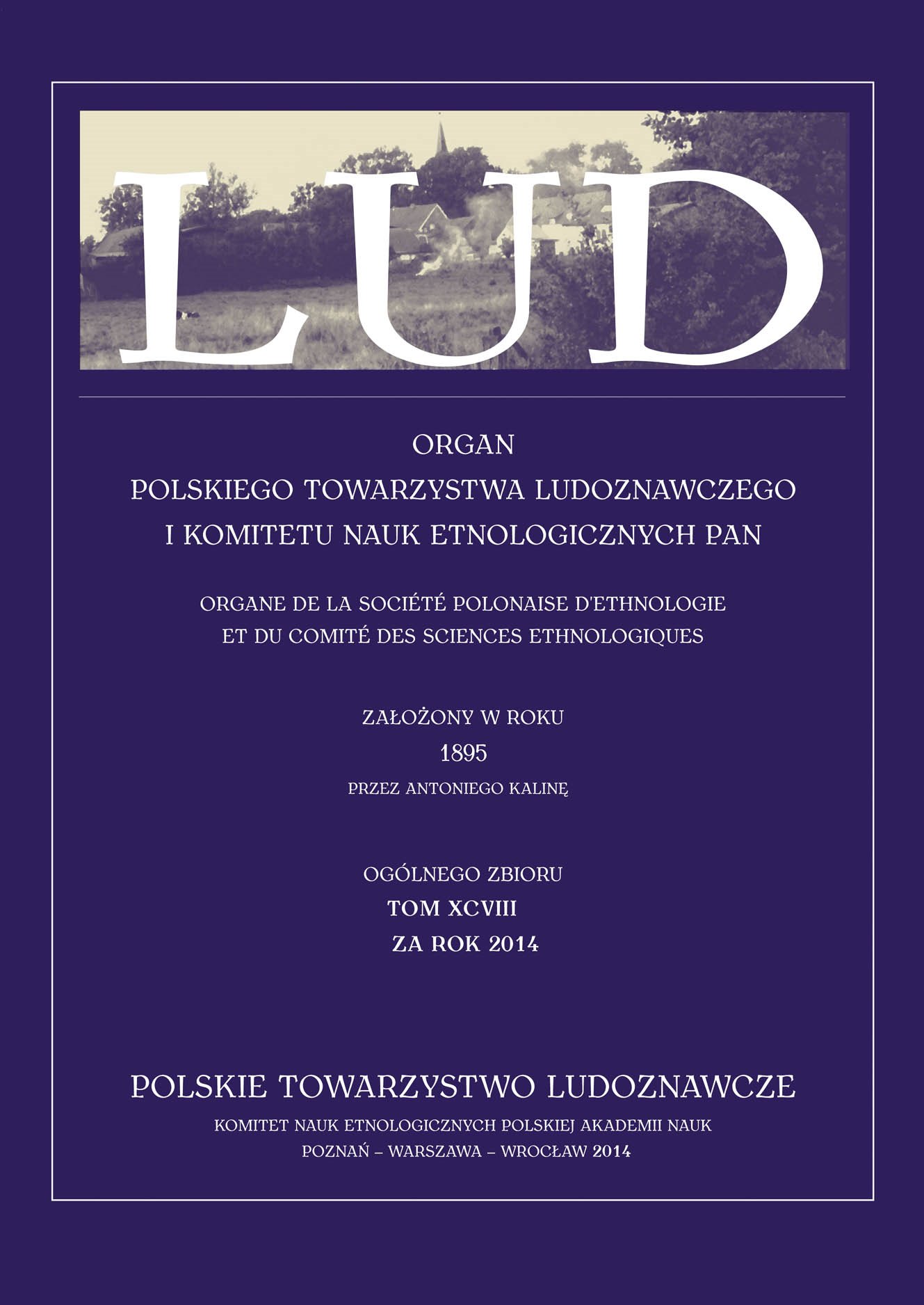UWAGI O FETYSZYZACJI EMPATII JAKO KATEGORII POZNANIA ANTROPOLOGICZNEGO
REMARKS ABOUT THE FETISHIZATION OF EMPATHY AS THE CATEGORY OF ANTHROPOLOGICAL COGNITION
Author(s): Filip WróblewskiSubject(s): Anthropology, Cognitive linguistics
Published by: Polskie Towarzystwo Ludoznawcze
Keywords: metaphor; empathy; dialogue; cognitive anthropology; fieldwork; everyday thinking;
Summary/Abstract: In his article the author reflects on the ways of thinking by some Polish anthropologists representing the younger generation of researchers and mainly addresses the way in which they approach fieldwork. The author uses materials collected during his study of Polish ethnographers and anthropologists conducted from 2010 to 2014. The author applies tools of analysis and set of concepts developed by cognitive linguistics. Primarily he uses George Lakoff’s and Mark Johnson’s theory of metaphor, which lets him map and show the scale of the impact of everyday thinking on reasoning and practice in anthropology. This infl uence increases because anthropologists conceptualize fieldwork using such categories as empathy, empathize, dialogue and face-to-face relation with informants and fieldwork participants. Based on the gathered data the author distinguishes three fundamental subdomains involving 1. the field and the contact, 2. the researcher, and 3. the meeting. Each subdomain comprises three conceptual metaphors: 1. field is ownership, contact is a test of power, contact is a deal; 2. researcher is an expert, researcher is a sinner, researcher is obliged; 3. meeting is the situation, meeting is the task, meeting is a union. These metaphors not only constitute a model of selected aspects of anthropologists’ professional way of thinking, but also, indirectly, as preconceptions and hidden presuppositions influence researchers’ attitudes in the field, their results and the form of anthropological knowledge.
Journal: LUD
- Issue Year: 98/2014
- Issue No: 1
- Page Range: 157-179
- Page Count: 23
- Language: Polish

